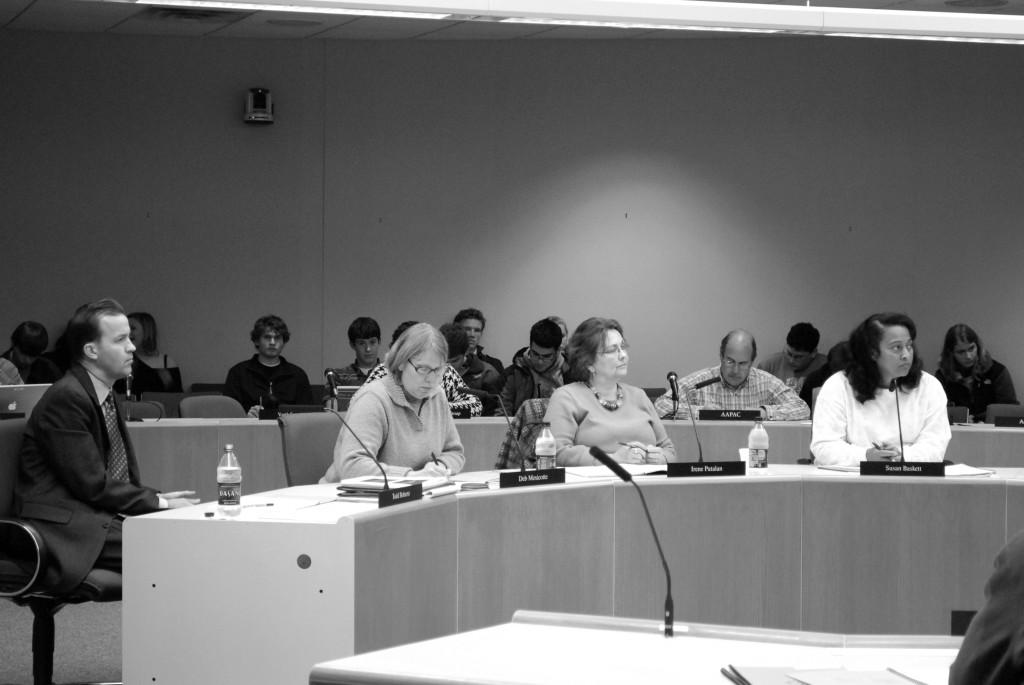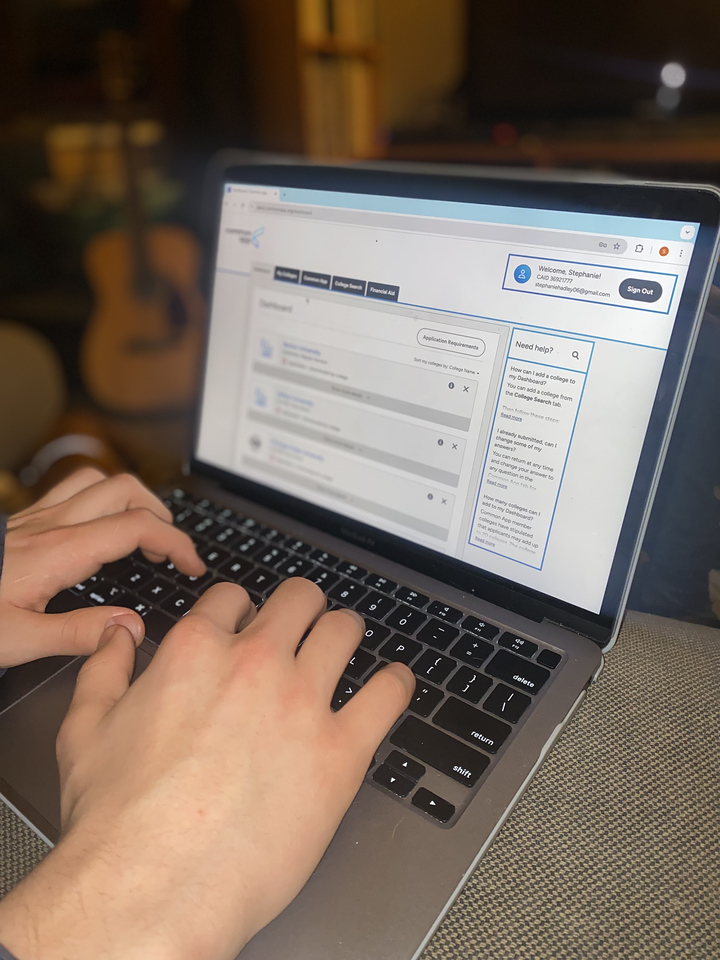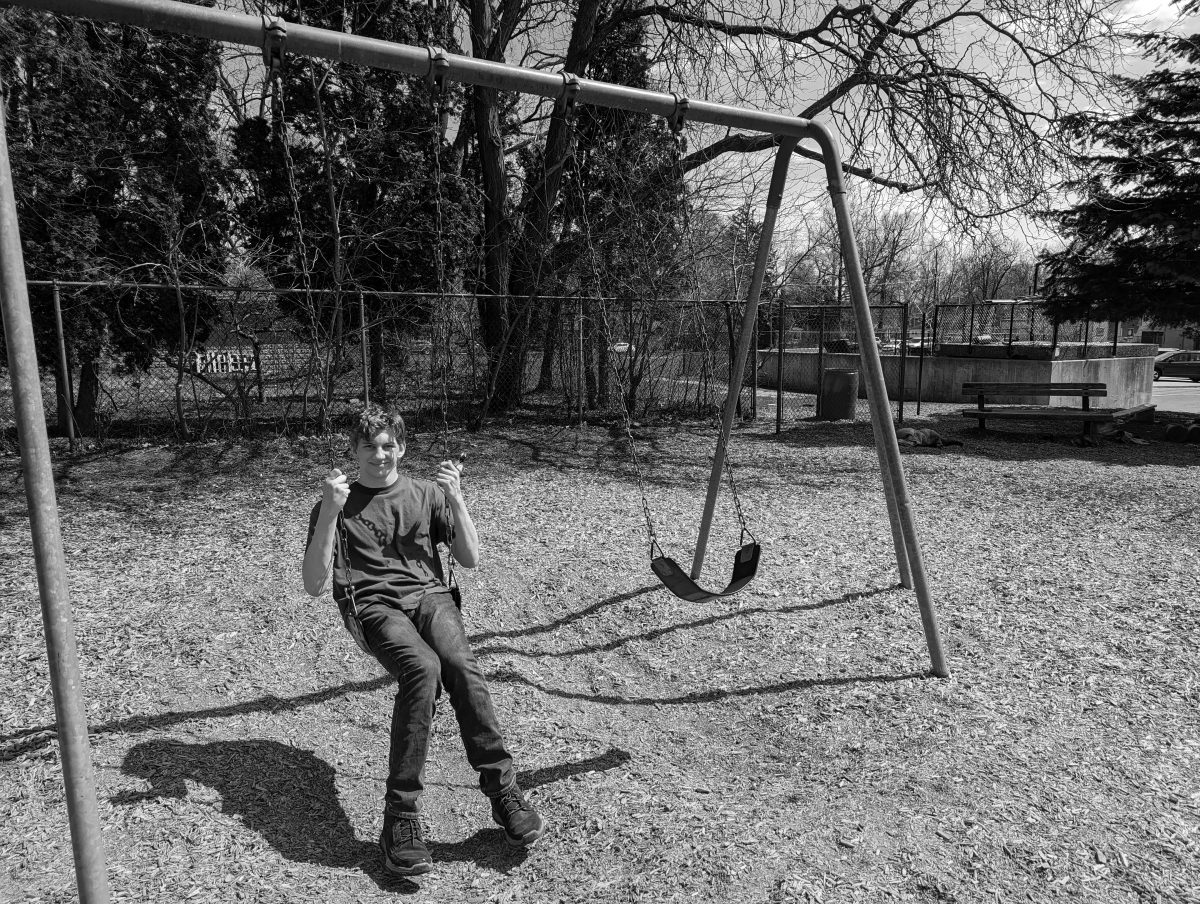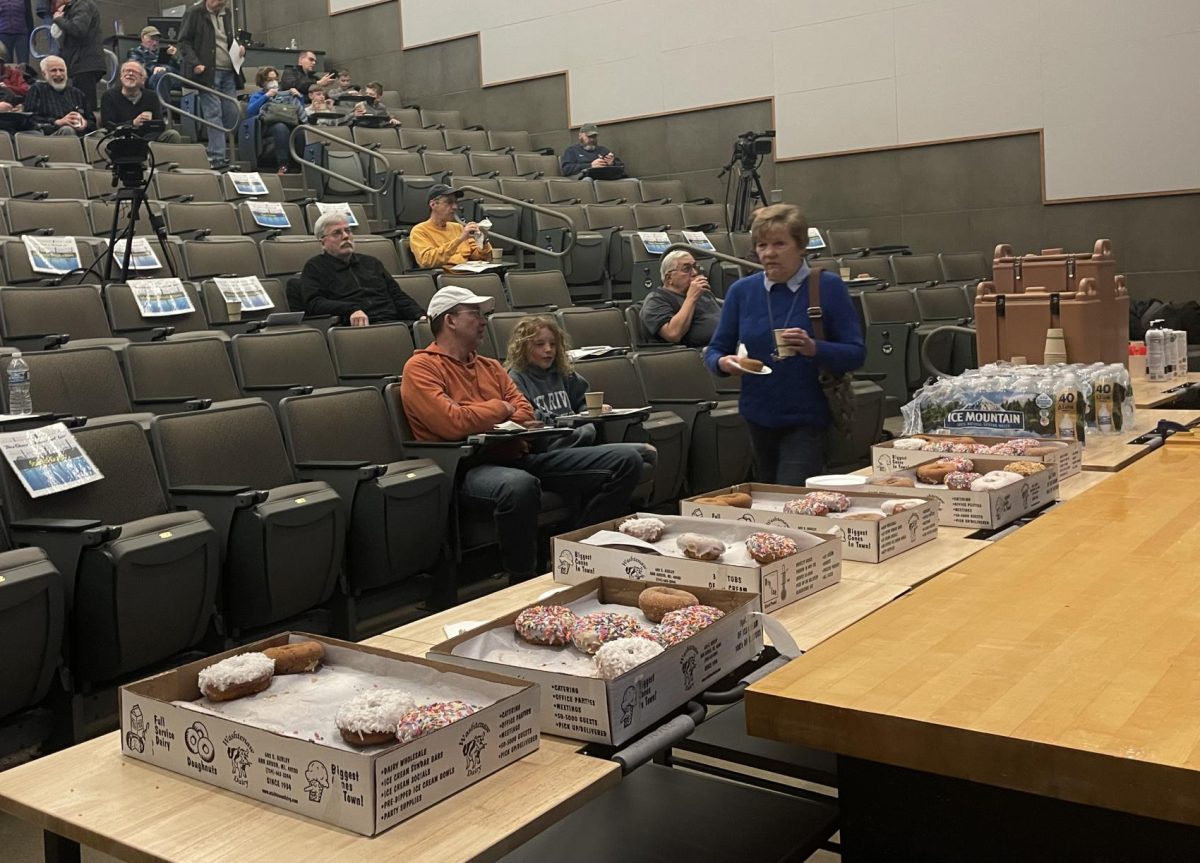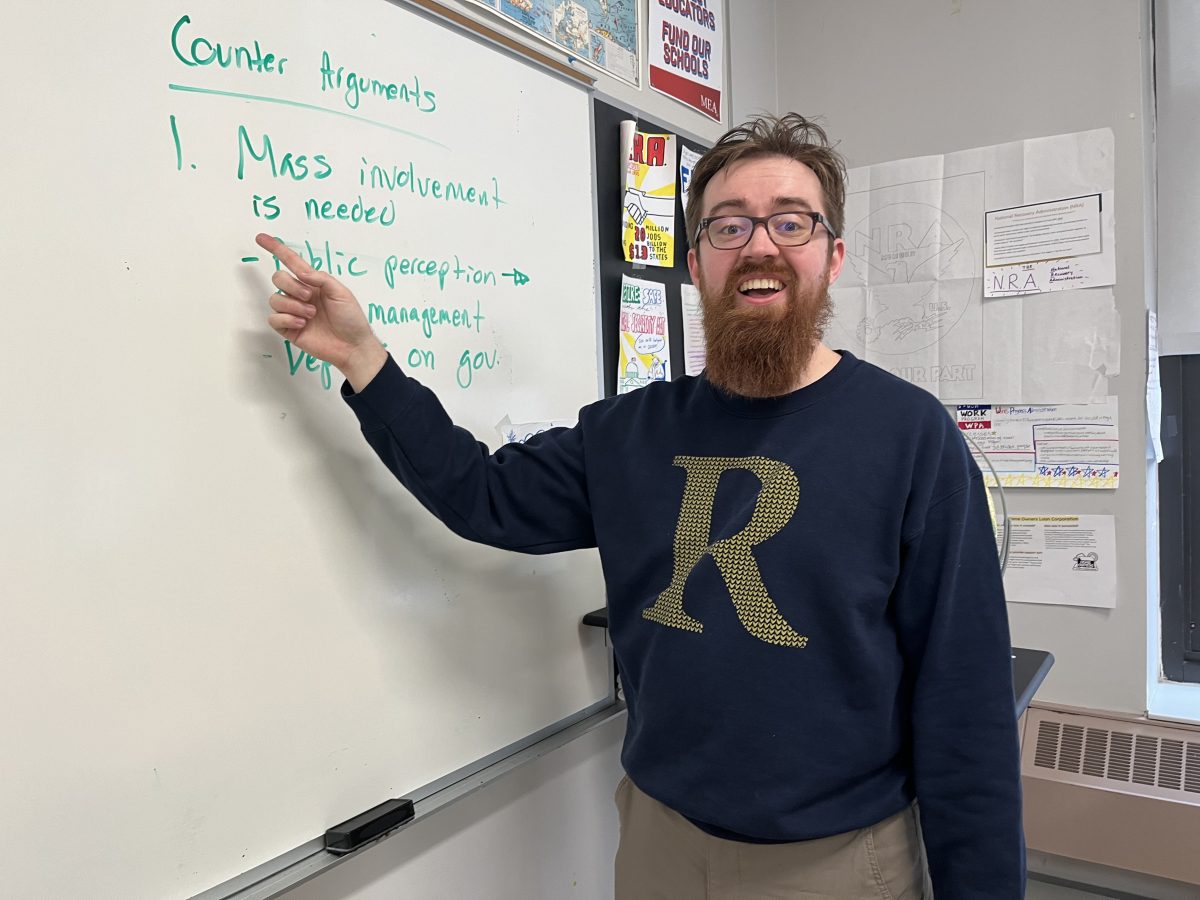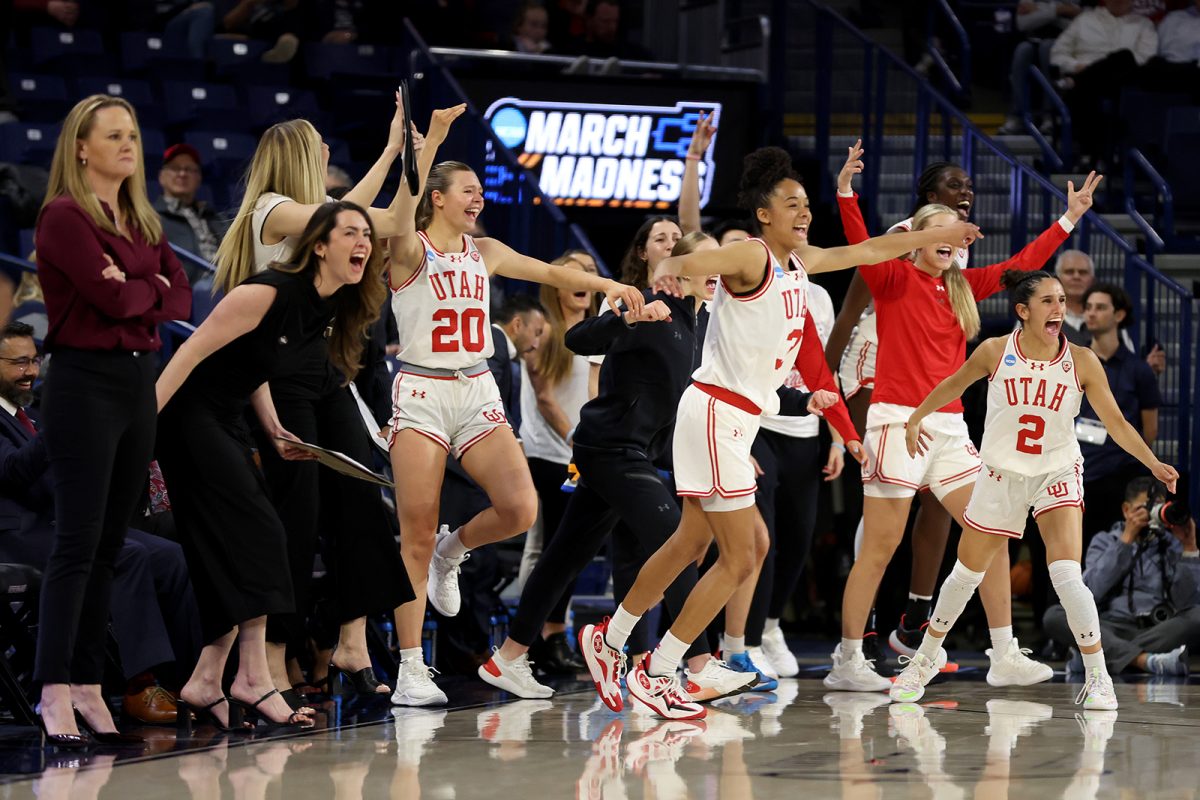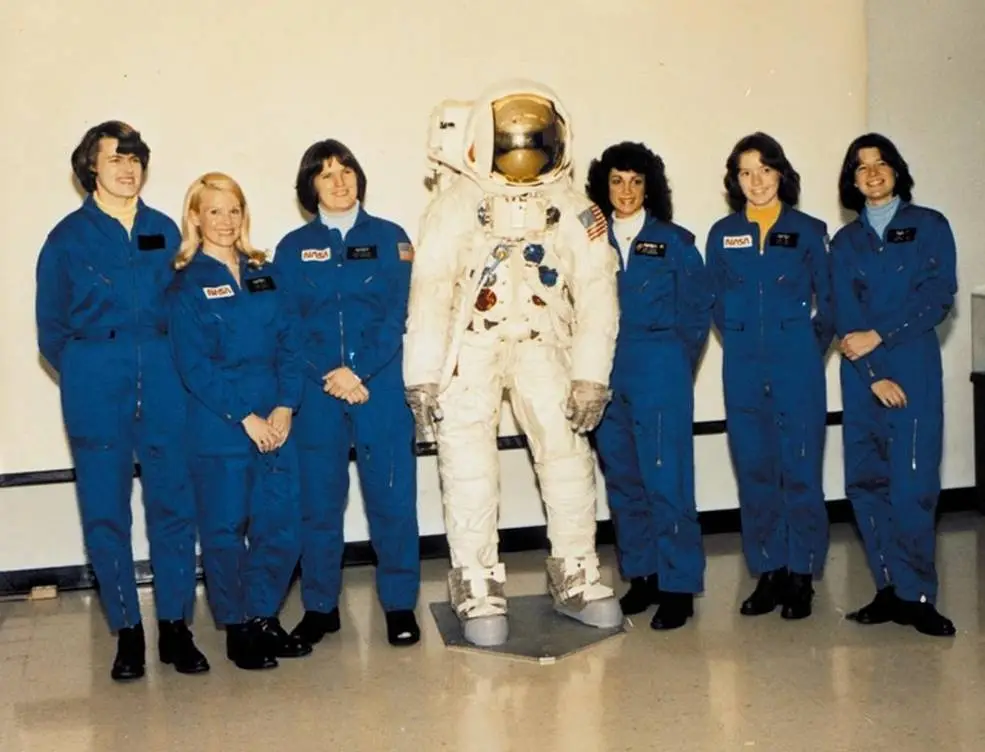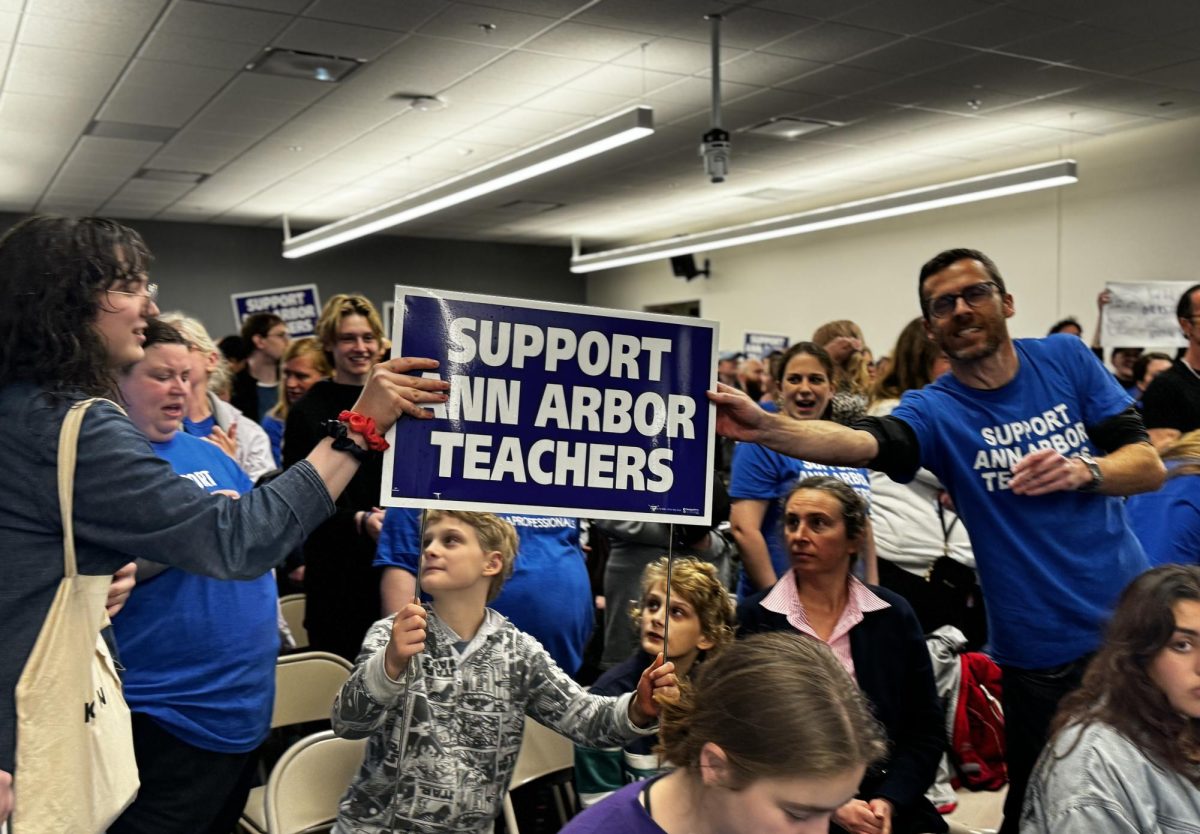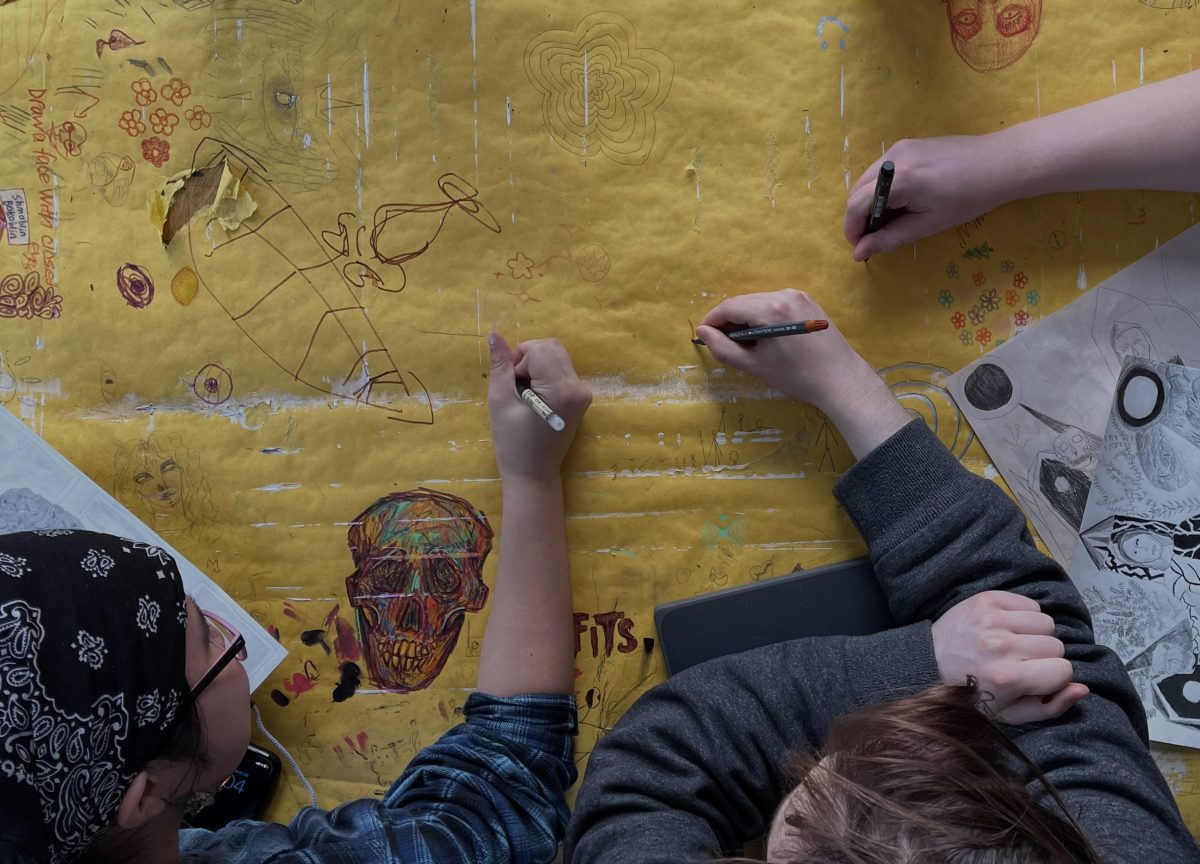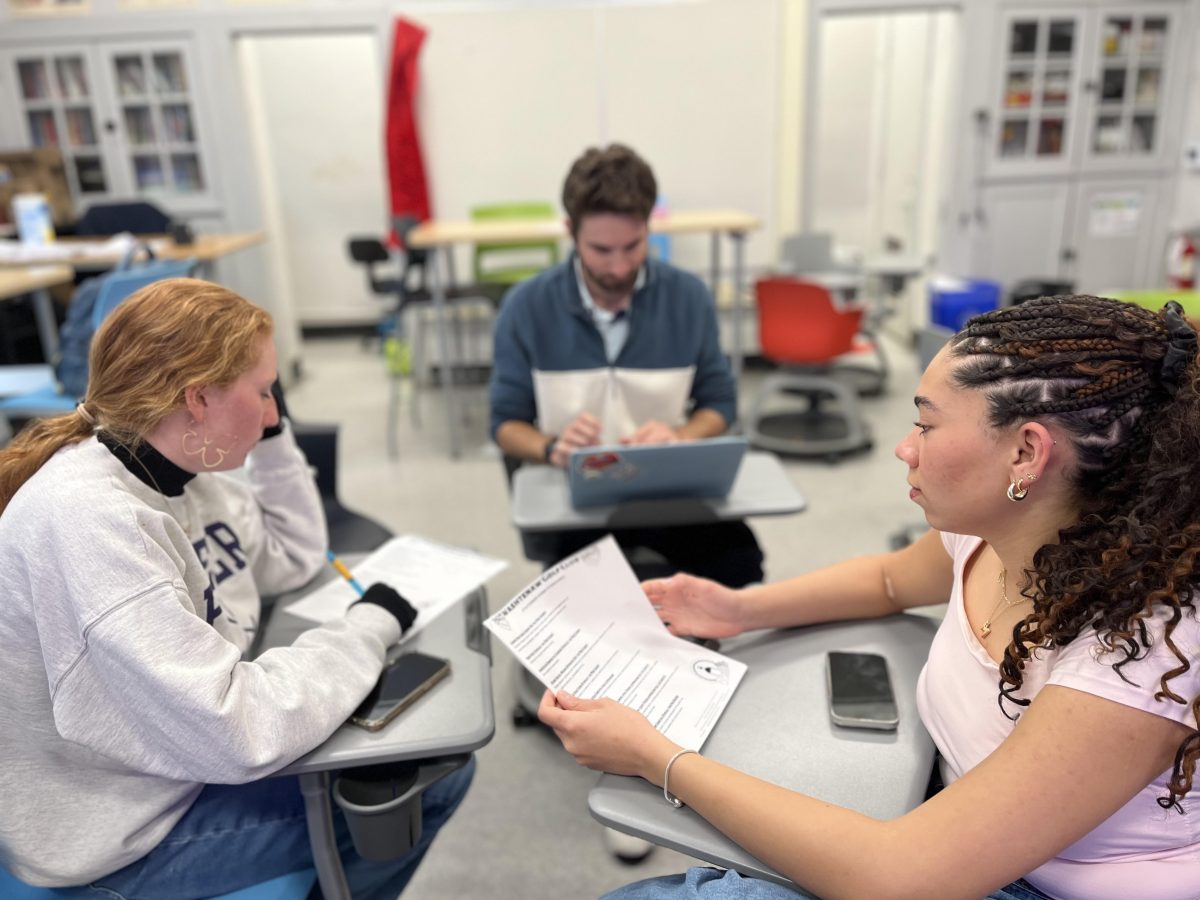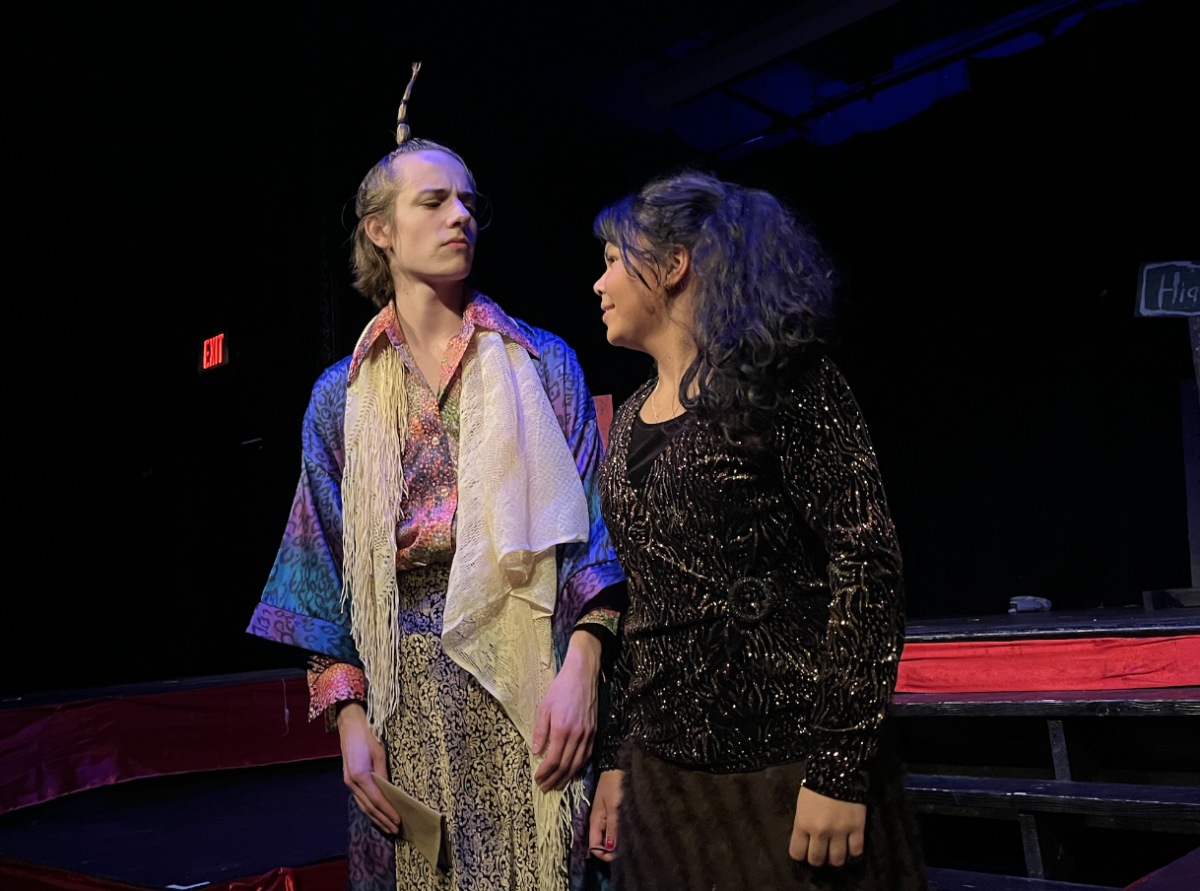
With the millage not having passed, it seems like there are new rumors created each day about what is going to happen. The most popular is the fear that Community will be closing for good. However, this particular rumor is based on very little fact. “I would be very surprised if Community closed,” said Glenn Nelson, Secretary of the AAPS Trustee, Board of Education. “One of the strengths in our [school] system is our different structures of alternative schools, such as Community, Stone, and Roberto Clemente Student Development Center.”
The Board of Education is working hard to come up with a plan to keep Community and other alternative schools open. They plan on making cuts, but as few as possible. “We can either cut salaries, or cut people, or a combination of both,” Nelson said, “It tends to be the newcomers because the teachers who have taught longer have more security. Newcomers are more vulnerable to any school cut.”
Foundations of Science I and Physics teacher, Courtney Kiley, one of the second year teachers at Community High School, knows all about this matter. “I’m sure there’s gonna be layoffs — I could lose my job here and get placed somewhere else because someone with more seniority wants my job.” Kiley also knows about the rumors going on. “People are talking about cutting seventh block, forum, buses, no one knows. Teachers probably have to take a pay cut and class sizes will increase. [It is] hard to handle, but the teachers will work to teach, because they’re passionate about it.”
The rumor that changes in class sizes will be made is true, and will come into effect next year. Nelson explained that not many changes will be made in elementary and middle schools, but that “in high school it’s a little more flexible.”
Right now, the Superintendent is starting to come up with a list to share with the board, and a few of those have already been put into motion. The board wants to cut back on their travel expenses. “There is no out-of-state travel, unless something really exceptional would come up. This is stuff out of the district budget. Most of the field trips are financed by PTSO,” Nelson said. Another topic the board has discussed is the process of filling in vacant positions. In the event of a vacancy, Nelson said, “there will be very close examination before anyone is hired into it.”
Even though some major decisions have already been made, there is still hope to have our voices heard, and for us to come to a compromise. The exact dates of community forums have yet to be announced, but will most likely take place sometime during second semester.
Steve Coron, an art teacher at CHS, believes that some subjects would get hit harder then others, “I’m not convinced that art would be the first to go, what could impact art education is some teachers would be laid off. I think the way we deliver art can change; I don’t think they will eliminate it entirely.” Coron believes that Community is greatly strengthened by its art programs: Jazz band, Dance Body, Photography and more. “The arts education here is such a strong part, and so many people come here to study the arts. To eliminate or change anything could eat away at the essence of what this building is.”
The general effects of the millage have not gone into play yet, but it has started to affect the mood of those in the county. “Well, the only way I’m affected right now is more of my general disappointment, about how we don’t have adequate and efficient funding for education. Also that education is not funded as a high priority nation-wide,” Coron said.
Kiley, much like Coron, knows that it will affect not just the teachers and the students, but the community as a whole. “Ann Arbor has always supported education,” said Kiley. “I thought Ypsilanti, some of those schools aren’t doing so well, you would think they would want to make them better, [because] they have legitimate problems.”
Despite all of the hope offered by the millage, the majority voted no. Trudy Kinard, a non-Ann Arborite, understands why her fellow residents would vote no. “Well, there is a number of reasons. I think those without children don’t see the need and those with children, we’re in suffering times right now, so they can’t see anymore money going out the door. Some people don’t want to pay those taxes because they want more control of where their money goes. They aren’t doing it to seem insensitive or cruel, they just want more control.”
Even though the millage did not pass, teachers at Community still seem to be optimistic about the outcome. Coron thinks that we should deal with this as with any other big change in our lives. “Any change is difficult, this is gonna be a big change. I just hope the people who do it will think creatively and will minimize the impact on students.”



